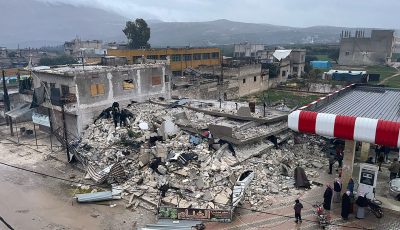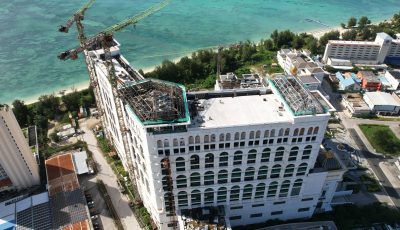Extreme hot temperature advisory: Stay indoors
The Commonwealth Healthcare Corp.’s Division of Public Health would like to inform the general public about the extreme hot temperature that we are experiencing lately in the Marianas that could be dangerous to your health.
What happens to the body as a result of exposure to extreme heat? People suffer heat-related illness when the body’s temperature control system is overloaded. The body normally cools itself by sweating. But under some conditions, sweating just isn’t enough. In such cases, a person’s body temperature rises rapidly. Very high body temperatures may damage the brain or other vital organs. Several factors affect the body’s ability to cool itself during extremely hot weather. When the humidity is high, sweat will not evaporate as quickly, preventing the body from releasing heat quickly. Other conditions that can limit the ability to regulate temperature include old age, youth (age 0-4), obesity, fever, dehydration, heart disease, mental illness, poor circulation, sunburn, and prescription drug use and alcohol use.
Who is at greatest risk for heat-related illness? Those at greatest risk for heat-related illness include infants and children up to four years of age, people 65 years of age and older, people who are overweight, and people who are ill or on certain medications.
What is heat stroke? Heat stroke is the most serious heat-related illness. It occurs when the body becomes unable to control its temperature: the body’s temperature rises rapidly, the sweating mechanism fails, and the body is unable to cool down. Body temperature may rise to 106°F or higher within 10 to 15 minutes. Heat stroke can cause death or permanent disability if emergency treatment is not provided.
What are the warning signs of a heat stroke? Warning signs of heat stroke vary but may include the following:
– An extremely high body temperature (above 103°F)
– Red, hot, and dry skin (no sweating)
– Rapid, strong pulse
– Throbbing headache
– Dizziness
– Nausea
– Confusion
– Unconsciousness
What is heat exhaustion? Heat exhaustion is a milder form of heat-related illness that can develop after several days of exposure to high temperatures and inadequate or unbalanced replacement of fluids. Those most prone to heat exhaustion are elderly people, those with high blood pressure, and those working or exercising in a hot environment.
What steps can be taken to cool the body during heat exhaustion?
– Drink cool, nonalcoholic beverages.
– Rest.
– Take a cool shower, bath, or sponge bath.
– Seek an air-conditioned environment.
– Wear lightweight clothing and stay out of direct sunlight.
For more information, contact CHCC HPEPP at 236-8201 or 8950. (CHCC)



























